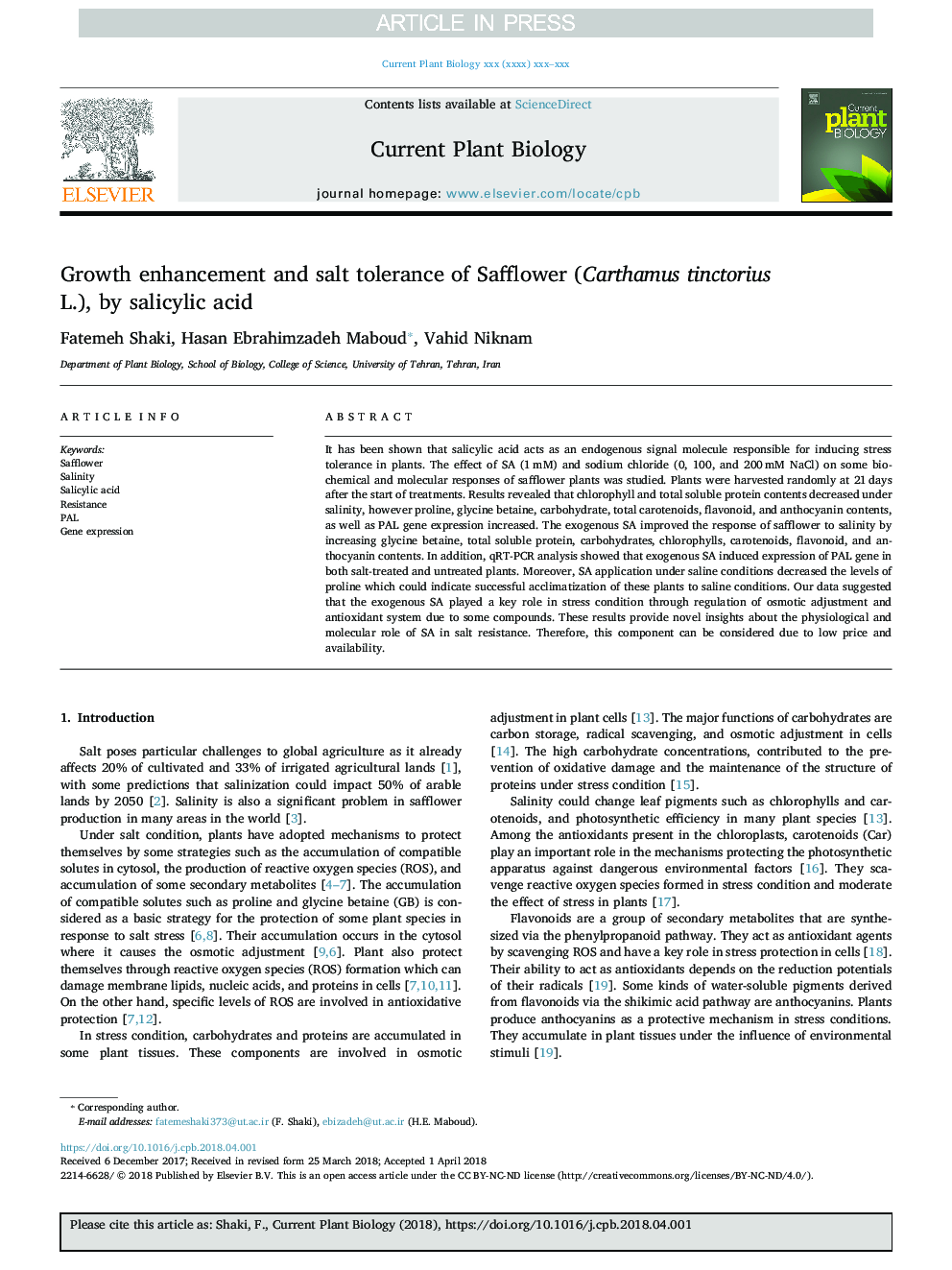| Article ID | Journal | Published Year | Pages | File Type |
|---|---|---|---|---|
| 6964973 | Current Plant Biology | 2018 | 7 Pages |
Abstract
It has been shown that salicylic acid acts as an endogenous signal molecule responsible for inducing stress tolerance in plants. The effect of SA (1â¯mM) and sodium chloride (0, 100, and 200â¯mM NaCl) on some biochemical and molecular responses of safflower plants was studied. Plants were harvested randomly at 21â¯days after the start of treatments. Results revealed that chlorophyll and total soluble protein contents decreased under salinity, however proline, glycine betaine, carbohydrate, total carotenoids, flavonoid, and anthocyanin contents, as well as PAL gene expression increased. The exogenous SA improved the response of safflower to salinity by increasing glycine betaine, total soluble protein, carbohydrates, chlorophylls, carotenoids, flavonoid, and anthocyanin contents. In addition, qRT-PCR analysis showed that exogenous SA induced expression of PAL gene in both salt-treated and untreated plants. Moreover, SA application under saline conditions decreased the levels of proline which could indicate successful acclimatization of these plants to saline conditions. Our data suggested that the exogenous SA played a key role in stress condition through regulation of osmotic adjustment and antioxidant system due to some compounds. These results provide novel insights about the physiological and molecular role of SA in salt resistance. Therefore, this component can be considered due to low price and availability.
Related Topics
Physical Sciences and Engineering
Chemical Engineering
Bioengineering
Authors
Fatemeh Shaki, Hasan Ebrahimzadeh Maboud, Vahid Niknam,
